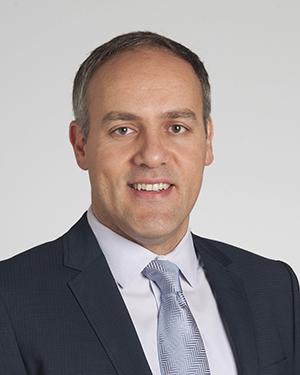Research News
08/29/2019
$2.4M NIH Grant to Study Relationship Between Inflammation, Blood-Brain Barrier in MS
In normal conditions, healthy blood vessels provide a physical border between the brain and circulating blood known as the blood-brain barrier (BBB). The barrier becomes compromised very early in MS.

Neurological disability in multiple sclerosis (MS) is caused by an inflammatory response in the central nervous system (CNS) that damages axons and myelin. These inflammation “hotspots” occur around leaky blood vessels and are an early indicator of disease. Under normal conditions, healthy blood vessels provide a physical border between the brain and circulating blood, called the blood-brain barrier (BBB). However, this barrier becomes compromised very early in the course of MS, allowing pro-inflammatory cells from the blood to infiltrate the CNS and initiate a cascade of neurological damage. It is not known what mechanisms cause the BBB disruption.
Dimitrios Davalos, PhD, Assistant Staff, Department of Neurosciences, and his team hypothesize that preventing BBB disruption will drastically reduce the inflammatory cascade that causes the neurological damage responsible for MS symptoms. He recently received a five-year, $2.4 million grant from the National Institute of Neurological Disorders and Stroke, part of the National Institutes of Health, to investigate these early events and pursue if and how molecular targets recently identified by his lab might become valid candidates for new therapies.
Current treatments for MS work by preventing immune cells from entering the CNS. While effective at reducing symptoms, this immunosuppressive therapy puts patients at risk for potentially deadly opportunistic infections. Dr. Davalos’ research aims to identify new treatments that can offer earlier protection against BBB disruption and prevent the formation of inflammatory hotspots, without compromising the patient’s immune system.
“We will use unique preclinical models and advanced imaging technologies to better characterize the vascular changes that occur in MS, and use that knowledge to design strategies for earlier intervention,” Dr. Davalos said. “We will take advantage of Cleveland Clinic’s extensive MS tissue bank to test how our preclinical findings directly relate to human disease, bringing us one step closer to translating our research discoveries into medical treatments for patients.”
Featured Experts
News Category
Related News
Research areas
Want To Support Ground-Breaking Research at Cleveland Clinic?
Discover how you can help Cleveland Clinic save lives and continue to lead the transformation of healthcare.
Give to Cleveland Clinic